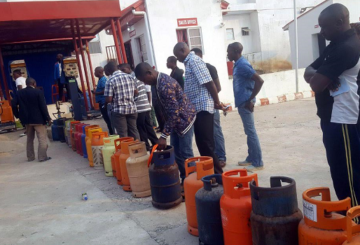
The Nigeria Extractive Industries Transparency Initiative (NEITI) has agreed to work with the Economic and Financial Crimes Commission (EFCC) to curb instances of criminality in Nigeria’s extractive industries.
NEITI and EFCC, according to a statement signed by NEITI’s Director of Communications, Dr. Orji Ogbonanya Orji, would in this regard sign a Memorandum of Understanding (MoU) through which the new partnership against criminals in Nigeria’s oil, gas and solid minerals sectors would be sought and prosecuted.
In its several reports of operations in Nigeria’s extractive sectors, the NEITI had repeatedly highlighted cases of criminality in the mining and sales of Nigeria’s minerals. It also includes actions that should be taken by the country to remedy the situations highlighted.
The statement, however, noted that the MoU with EFCC wouls focus more on identified financial crimes disclosed by the NEITI reports in the oil, gas and mining industries.
“It will also specify how NEITI and the EFFCC will deal with such crimes expeditiously through information and intelligence sharing as well as human capacity mobilization,” it added.
According to the statement, the decision to set up such partnership was reached at a high-level meeting between the Executive Secretary of NEITI, Mr. Waziri Adio and the Chairman of the EFCC, Mr. Ibrahim Magu. Both principals of the agencies met with top management teams of the two agencies.
Adio, according to the statement drew the attention of the EFCC to other emerging issues in the implementation of the Extractive Industries Transparency Initiative (EITI) principles in Nigeria which would require its attention and support to implement effectively in the best interest of the Nigerian economy.
He listed the emerging issues to include, the beneficial ownership disclosure, contract transparency, commodity trading and oil theft.
Adio, explained that the beneficial ownership disclosure sought to provide information to the public on the real owners of businesses in Nigeria’s oil, gas and mining industries. The NEITI, he informed would require the support of the EFCC towards its implementation.
This, he explained was in view of the strong connection between disclosure of the beneficial owners of companies and financial crimes such as money laundering, tax evasion and terrorism financing.
He equally called on Magu to work with the NEITI as the agency’s legitimate interest in deepening transparency in these areas stemmed from the strong linkages between corruption in Nigeria’s extractive sector and sabotage of the economy.
Adio, reportedly commended Magu and his team for their hard work, courage and commitments which he noted has resulted in the visible achievements so far recorded by the EFCC in the discharge of its assignments.
Magu, on his part described NEITI and the EFCC as key partners in progress, and said it was important for both to strengthen their partnership.
He also described the extractive industries as the main source of revenues to the Nigerian economy as well as a source of corruption and financial crimes.


